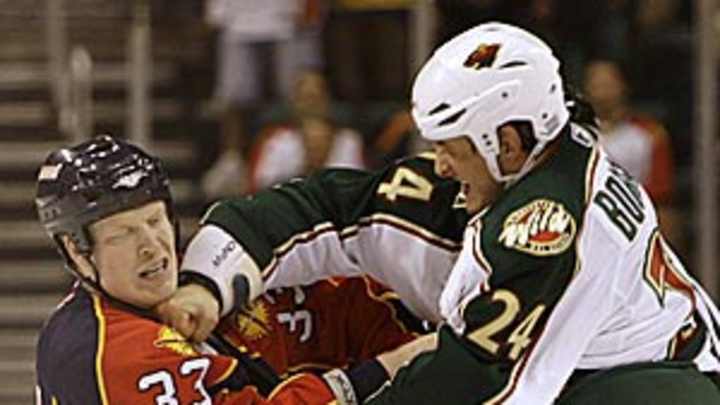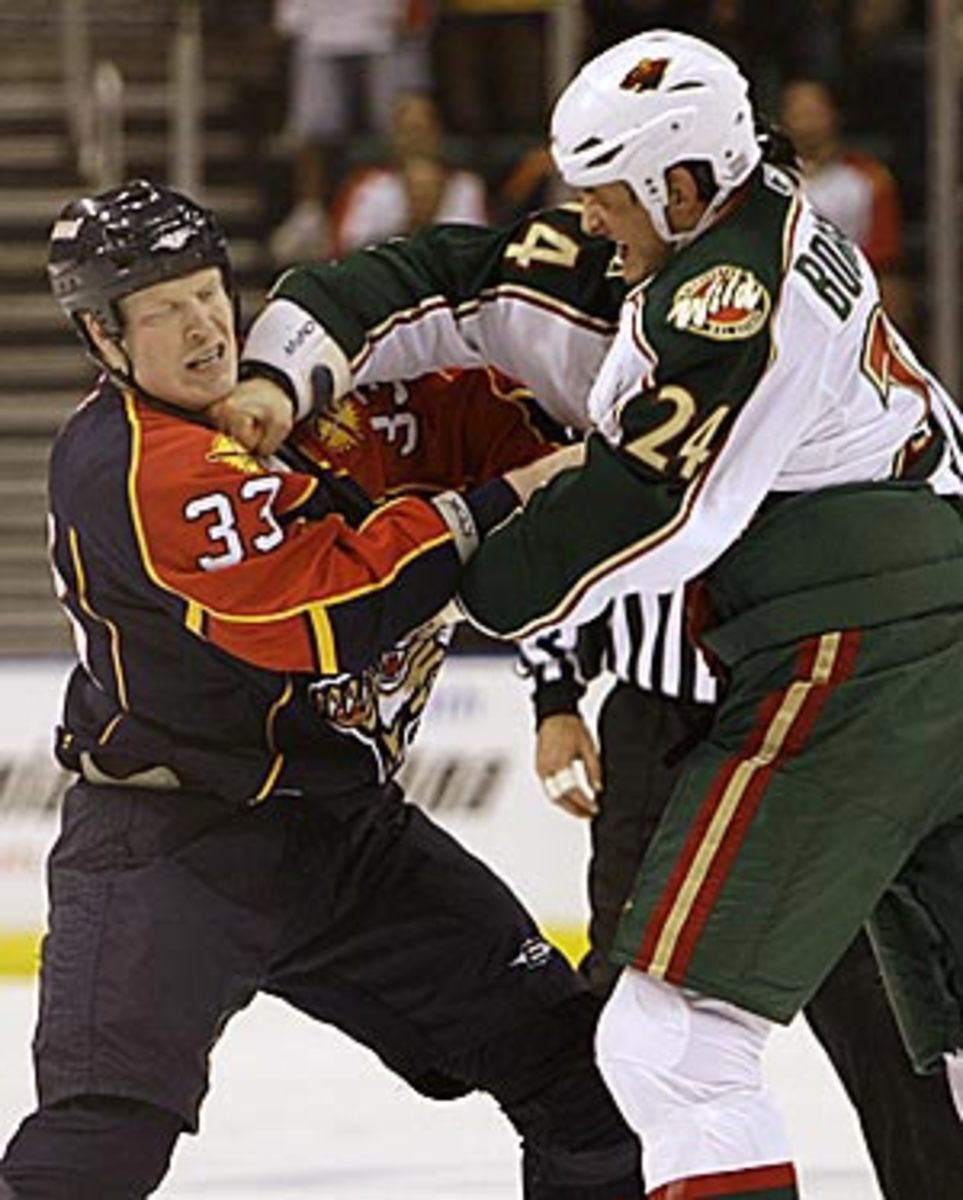Belak's death casts cloud over fighting in NHL

It's no secret enforcers like Wade Belak and Derek Boogaard have one of sports' most physically and emotionally demanding jobs. (Lynne Sladky/AP)

By Stu Hackel
With today's report in The Toronto Star that Wade Belak suffered from depression, we have a possible explanation for an event that has shocked many who knew him and alarmed many more. Belak, found dead in a Toronto hotel on Wednesday, is the third NHL enforcer to die since May. His death has been reported by some as a suicide, the same talk that surrounded the death of Rick Rypien in mid-August. Derek Boogaard's case was ruled accidental, due to a lethal mixture of alcohol and pain killers.
Belak had just retired, but some connection between his occupation as a hockey tough guy and the closely spaced deaths of the other two enforcers has been sought.
“I think sometimes we get caught up in generalizations,” Allain Roy, Rypien’s agent, told John Branch of The New York Times today. “We have three sad instances where we have three young men who struggled with their lives off the ice. Whether their role played a piece in it, I think it’s almost impossible for anybody to draw that straight line through it — to say, all right, they were enforcers, and this is why this happened to them.”
Branch went on from there to explore, if not exactly draw, the straight line that Roy warned against. He's not alone, of course, because there are many who would like to see fighting removed from hockey and they see these three deaths as evidence of its destructiveness to the sport as well as the individuals who play it. We cautioned yesterday, however, that there are many more questions to be asked and answered before one transforms this awful coincidence into a pattern of evidence and calls for an end to fighting in pro hockey.
There's no doubt that fighting is a difficult activity, both physically and psychologically, and it's hardly news. Back in 1997, SI's Michael Farber wrote about the emotional swings some tough guys endure in their hard, punishing work that is not as well compensated as some other roles on a team. And while fighters are among a team's biggest heroes to its fans, they are also among the biggest villains on the road. Some play only a few minutes per game, if that, although that brand of enforcer -- the "goon" type that came into vogue in the 1970s -- seems to have less place in the contemporary faster NHL where good skating and some degree of skill are nearly mandatory. The old-fashioned one-dimensional fighter is becoming something of an endangered species (at least on the ice; many seem to have found second careers in the media, and Belak was headed for that as well).
Farber called NHL fighting "the worst job in sports," and chronicled the joylessness some feel about the profession. "I love this job, but at times I almost hate this job," Louie DeBrusk told him. "There are times you don't feel like going out there and fighting.... Unfortunately, that's my job." And it's also their identity, for better or worse.
But depression is a social problem, not merely a hockey fighter's problem, and it's widespread. Are enforcers more prone than others in the game? We also wrote yesterday about pro hockey players who were not fighters but suffered from depression or other forms of anxiety and emotional disorder. We looked at how widespread mental health problems are throughout both the U.S. and Canada -- upwards of 20 percent of the population -- remarking that there's no reason to believe that athletes are somehow immune from being part of that group.
In fact, in a highly recommended, penetrating 2003 piece on mental illness in pro sports, SI's L. Jon Wertheim wrote about how athletes may be more vulnerable to mental illness than the general population. He quoted experts who attributed that to a number of factors, including the stress of performing in public, a traveling lifestyle that robs them of the support gained from a regular home life, childhood traumas (which may be less prevalent in hockey than other sports) and head injuries (which may be more prevalent in hockey than most other sports). He also noted that athletes tend to hide emotional problems for fear that they indicate to their peers some sort of weakness -- and of all the athletes who must display courage and deny or mask weakness, we'd have to put hockey fighters near or on top of the list.
But when you look at those risk factors, are fighters more vulnerable than other hockey players? It seems unlikely even in the case of head injuries. The NHL's research indicates that most concussions in the game are accidental or inadvertent, not the result of deliberate head checks or fights. But that really must be fully explored before adequately assessing the meaning of these three recent deaths.
None of this is to cast doubt on the known effects of post-concussion syndrome that include depression, nor the link being researched between fighting and chronic traumatic encephalopathy, CTE, the degenerative neurological disorder that can result from concussions and is known to cause cognitive decline, behavioral abnormalities and ultimately dementia. (Boogaard's brain is now being studied for evidence of CTE, a link that seems valid.) Nor should we minimize the myriad difficulties hockey fighters face -- the concussions, the medicating, the self-esteem problems and other emotional baggage.
But there are larger issues at play here that need to be comprehended before we can understand if there is any real connection between these deaths and what, if anything, they mean for the sport.
[vodpod id=Video.15358364&w=425&h=350&fv=]
